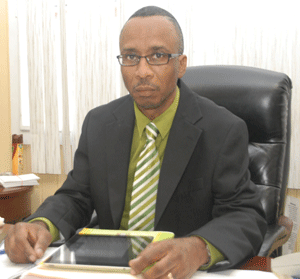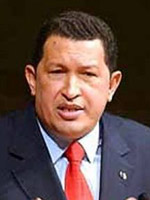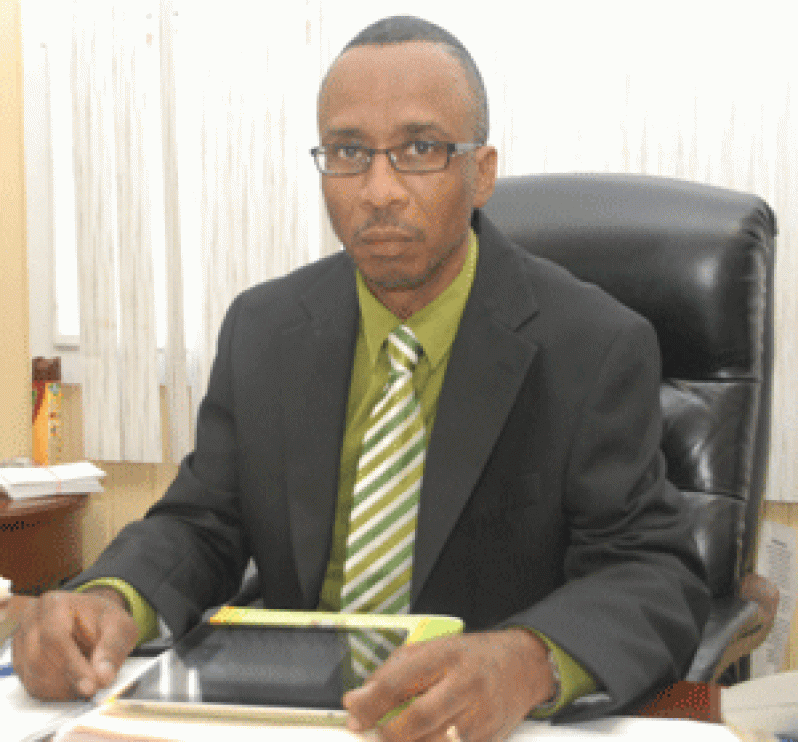ONE of the favourite labels that the Western mainstream media has had for Chavez is that he was a “polarizing” or “divisive” figure in Venezuela politics – the irony is probably blatant, for example, in the American context. If we are to compare Obama’s re-election with a little over 50 percent of the popular vote, and the continued gridlock of the US legislature, with Chavez’ returning to yet another six-year term with over 60 percent of the vote, we tend to see how prejudicial such labels can be.
 There are few global leaders, even in liberal democracies, of whom one can say that he or she is truly “of the people”, which strangely enough is what “democracy” by definition is, or at least should be.
There are few global leaders, even in liberal democracies, of whom one can say that he or she is truly “of the people”, which strangely enough is what “democracy” by definition is, or at least should be.
Hugo Rafael Chavez Frias can be counted among them. Born in a working class family, he joined and excelled in the military at an early age, military service being perhaps the most emblematic act of patriotism in Latin America, even more than in the United States. His patriotism was never incidental however – it was an active impetus for his life from a very early age. At an age when the average (and above) young Guyanese would be more concerned with liming with friends every Friday afternoon after work, Chavez, not yet 30, founded (not joined, mind you) the Revolutionary Bolivarian Movement-200. Along with his compadres, Chavez is said to have recited the oath of Simon Bolivar almost 200 years before.
“I swear before you, and I swear before the God of my fathers, that I will not allow my arm to relax, nor my soul to rest, until I have broken the chains that oppress us…”
Ten years later, in February of 1992, he would attempt, not yet 40, to overthrow the government of Carlos Andres Perez, a government riddled by corruption and presiding over a severe economic crisis which impacted the country’s poor in particular. Although his coup failed, it was ironically Chavez’ televised acknowledgment of defeat which catapulted him into the hearts and minds of Venezuela’s disenfranchised, when, even in concession, he could not help but adding, “for now.”
And he meant it – even imprisoned, a recorded call to arms inspired a slightly more effective coup attempt later that year, but one which also failed. It did, however, have an incidental success, in that it triggered the 1993 election, the Presidency of Rafael Caldera, which preceded the volcanic eruption of Chavez onto the political scene and into the presidency in December of 1998.
What sets Chavez apart from most populist leaders is his refusal to be provincial, to focus simply on maintaining a high standing among the people who kept giving him a mandate to rule at home. A visionary, Chavez saw the need for a new Bolivarianism, a movement of self-sufficiency and social change that was not restricted by the lines that delineated countries on maps. He was brave enough to hold his ‘pink’ revolution up as a model for the entire region, and he put his country’s enormous oil wealth where his mouth was, into programmes like PetroCaribe, which benefitted the English-speaking Caribbean, an area hitherto ignored by Latin America. With Castro aging, and his Cuban revolution indigent, Hugo Chavez arrived on the geopolitical scene just in time to stem the oil-hungry, neo-con tide that would take over America with the election of George W Bush in 2000 – the same oil wealth was used as a bully pulpit for some of the most inflammatory anti-imperial rhetoric this new century has seen.
Perhaps more importantly, there is Chavez’ relationship with Guyana. Whereas previous administrations continued the Venezuelan belligerence over the Essequibo, under the Chavez, it seemed that the most tumultuous thing to have come out of that issue was someone playing Dave Martins “Not one blade of grass” on the radio. The major diplomatic snafu was a controversy, dying down almost as soon as it arose, over the display of a map somewhere. Even our usually divided political leadership agreed in their condolence messages that “Hugo Chavez was a friend to Guyana”. It was therefore fitting that President Ramotar himself honour that sentiment by leading Guyana’s delegation.
In terms of his legacy, let me play devil’s advocate by suggesting that it is perhaps a good thing that Chavez passed away when he did. The problem with populism is that it can be its own worst enemy when invested in a single, long-lived leader – it evolves into a cult of leadership that grows stale and self-perpetuating, a fact that was almost literally proved in this case with the debate whether or not to preserve his corpse in perpetuity. This is an historical lesson that is true of Chavez’ mentor and compadre, Fidel Castro, as it was true of his idol and predecessor, Simon Bolivar, who outlived his own historical role.
Castro is still very much alive, although having handed the reins of leadership to his also aged brother, Raul; so it is hardly impossible to assess whether there are any lessons to be taken from a post-Fidel Cuba to be applied to a post-Chavez Venezuela. Perhaps, in true Latin American dynastic tradition, we may well see the eventual elevation and grooming of one of his daughters as the icon, if not the agent, of the continued revolution. Whatever the outcome, what is certain is that the young officer that swore that oath 30 years ago took his destiny into his own hands and kept it, and the poor of Venezuela are better off now than they have ever been.
If anything, despite his blunders, history needs more men like Hugo Chavez.



.jpg)










